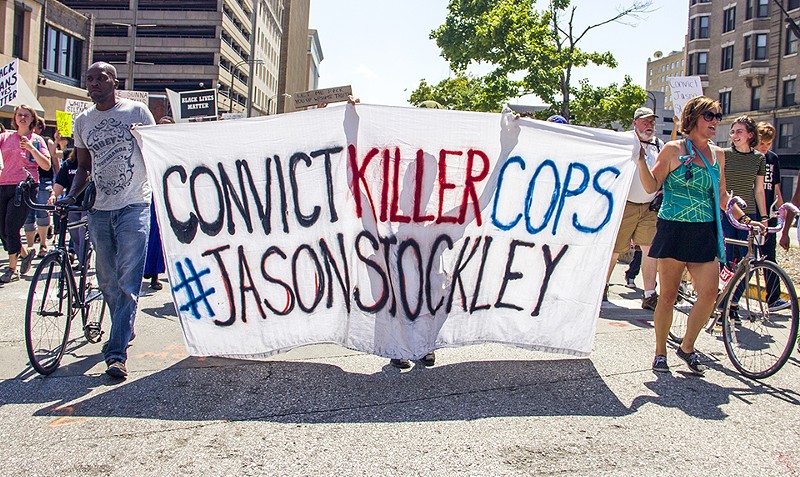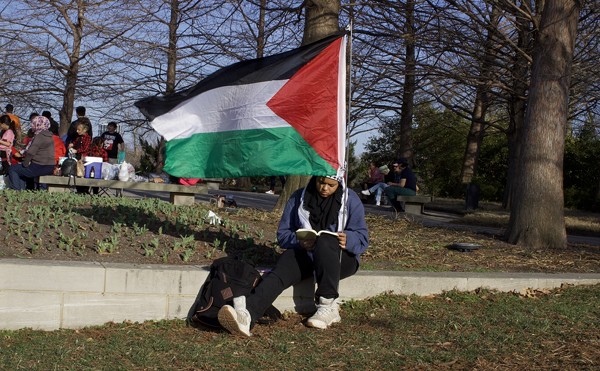More than two weeks after Judge Wilson issued his decision finding Stockley not guilty, protests have taken place almost every single day in St. Louis and its suburbs. Protesters have marched through shopping malls and city streets, through the parking lot of a suburban Target and in front of police headquarters. They've chanted "Anthony Lamar Smith," "no justice, no profits" and "the whole damn system is guilty as hell."
In a town hall meeting held in downtown St. Louis on September 28, protesters unveiled a list of demands, including the resignation of Mayor Krewson, the closure of the city's workhouse and an audit of the police department.
They've also called for the termination of acting police chief Lt. Colonel Lawrence O'Toole. O'Toole became a polarizing figure by boasting that the police "owned the night" after arresting 123 protesters, observers and even a Post-Dispatch reporter on September 17. Of that total, 120 were charged solely with "failure to disperse," and lawsuits are already being filed by people claiming they weren't given a chance to leave before being pepper-sprayed and even beaten by city cops.
But O'Toole's history with the Stockley case, too, has roots much deeper than his role in managing the department's response to the protests. Shahid has pointed to a photo that shows O'Toole, then a major, on the scene in the aftermath of Smith's killing — an unmistakable figure in a coat and tie standing just behind police tape as a crime lab staffer collects evidence in Smith's car.
The photo was published as part of a Post-Dispatch slideshow focused on the case, though O'Toole's presence in the image was not noted by the paper. O'Toole also never mentioned his presence in any of the numerous press conferences or interviews he conducted before or after the Stockley verdict.
The closest O'Toole ever got to a candid remark about Stockley came on August 31, while the city was still paralyzed in anticipation for the verdict. That afternoon, detectives had opened fire on a suspected car thief, striking him in the torso. As O'Toole wrapped up a press conference — the detective, the chief said, had acted in self-defense — a reporter asked O'Toole to comment on the impending verdict.
"In regards to the Stockley case, I will only say that the St. Louis Metropolitan Police Department held Stockley accountable for his actions, and he is no longer employed by the St. Louis police department," O'Toole said. He pointed out that Stockley had been charged and afforded "the full transparency of the investigation that the police department conducted."
"Like it or not," O'Toole said, "the system is working."
Asked about the press conference now, Shahid calls O'Toole "a sneaky motherfucker."
"When he made that statement, that he's being 'transparent'? He's a motherfucking liar," Shahid says. "They're not being transparent on shit."
On September 25, Shahid marched with hundreds to the headquarters of the St. Louis police department to demand O'Toole's resignation. Bullhorn in hand, Shahid looked across the crowd of diverse, mostly young faces, and he roared invective at the glass façade rising above them.
Shahid passed the bullhorn to another activist, and he joined his booming voice to the swell of outrage echoing through the downtown street. A few feet away, a protester pointed to the silhouettes moving behind the windows above them. The police were watching.
Fists in the air, the crowd chanted back, "Blue silence! Is Violence!"






